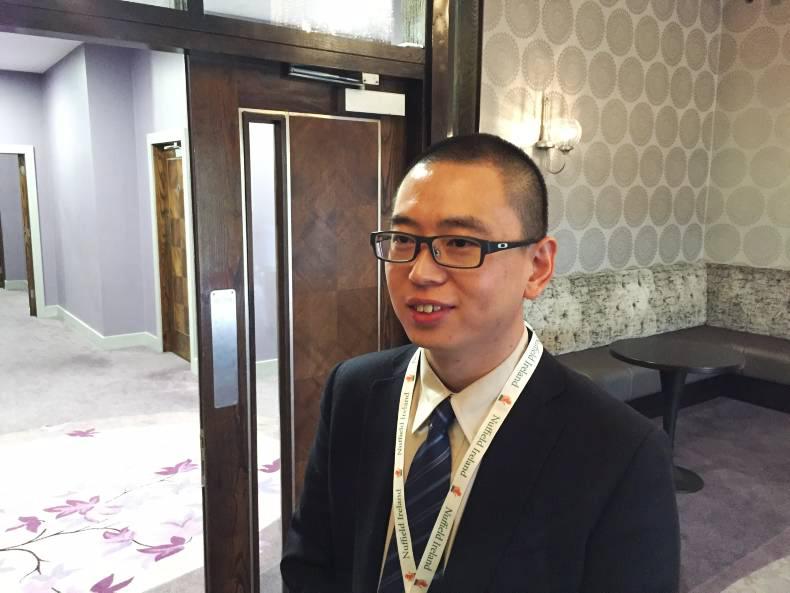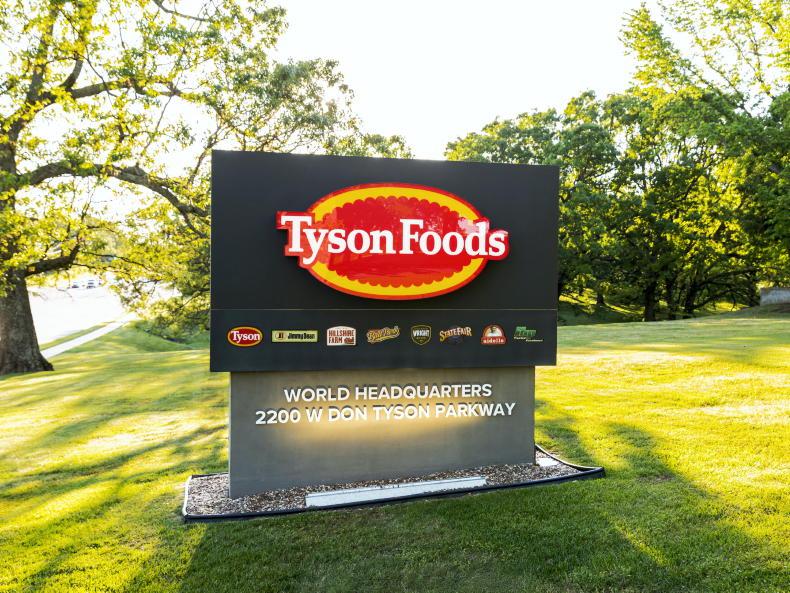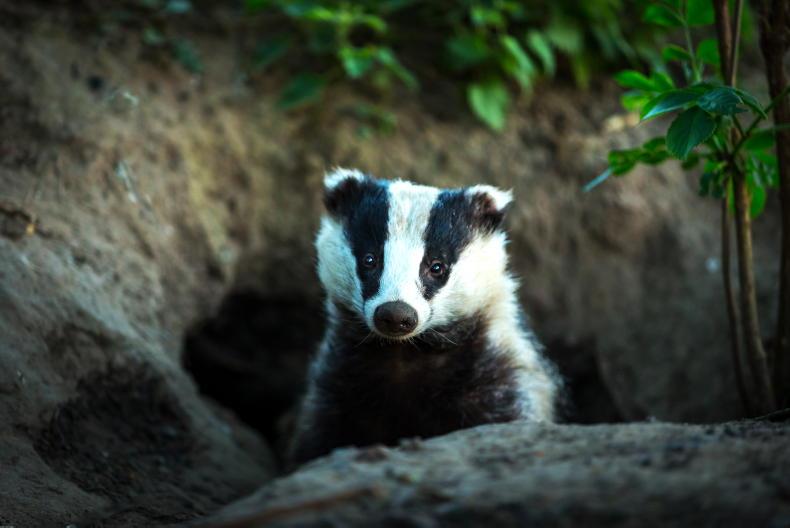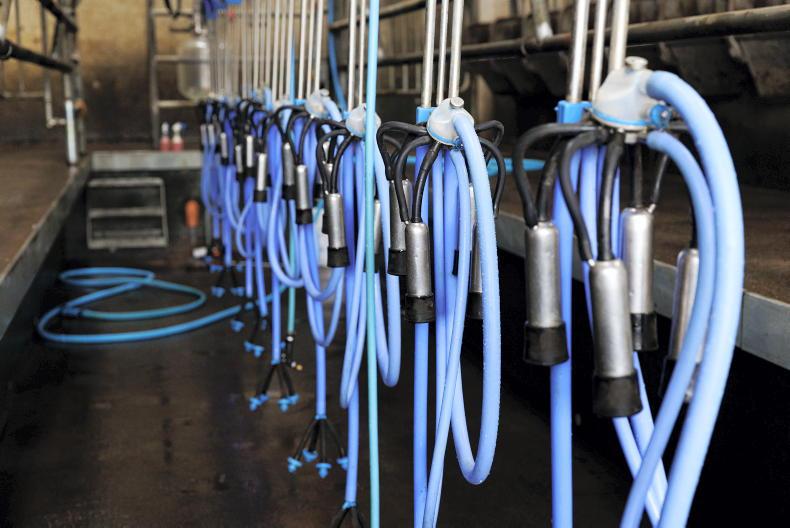Kevin is vice-president of East Rock Farm Technologies, a company planning and delivering ready-to-milk dairy farms across China. He visited Ireland for the recent Nuffield contemporary scholars’ conference and gave fascinating insights into the Chinese dairy industry, which he said has grown from 5m cows in 2000 to 15m in 2015.
Kevin said domestic demand for milk took off in the early 2000s thanks to a packaging revolution, when plastic sachets replaced glass bottles in China.
Melamine scandal
But the melamine scandal of 2008, when infant formula milk was tainted with the poisonous substance to cheat on protein content, rocked the industry and forced the government to step in and sponsor the development of large-scale farms.
As the industry expands, Kevin said it faces challenges. “I believe our milk price is double that here in Europe, but our problem is efficiency,” he told the Irish Farmers Journal. “It is pretty easy to have the hardware ready for big size, but it is harder to have the software ready: we lack qualified people who can manage big-sized dairy, as well as qualified veterinarians and nutritionists.”
Smaller farms “eliminated”
The industry is looking for the best format to deliver quality milk to the growing middle class. “The good thing is that the government and the people are thinking: ‘What is the right size for dairying in China?’,” Kevin said. “Is it 10,000 cows? I don’t think so. I think the good size for China is around 2,000 or 3,000,” he added, regretting that smaller farms had been “eliminated” through the sector’s recent evolution.
Listen to the full interview with Kevin Shi Baoqing in our podcast below:
Underlying factors have slowed down dairy development, including land availability and ownership. “In the western world, when you have dairy, you have land surrounding it, so you can put your manure back in and you can crop and harvest the feed from the land and put it back into dairy. We don’t have that in China,” Kevin said. However, he acknowledged efforts by the government to address land issues since the end of last year.
Changes in land policy
On the one hand, he said policy is changing to curb the overuse of chemical fertilisers, which has depleted Chinese soil fertility, and favour the use of slurry from dairy farms.
On the other hand, the communist government is considering changes to the full state ownership of agricultural land – “Allowing purchasing and selling of land, probably not of ownership, but at least of land use,” Kevin said.
Will this make China self-sufficient? Kevin believes the dominance of imported milk, especially for infant formula, will “last for a long time” before the country solves all the issues in its agricultural chain.
If your price is lower than ours, there will always be a market for you.
Even in the long term, he does not thinks China’s stated policy of self-sufficiency means “building a wall”. “For example, we have signed an agreement with the Australian government already and lowered the tariff on agricultural products from Australia to zero,” Kevin said.
He added that China had accepted to trade in an open world: “If Ireland or America is good at making milk, why not buy some from them? To me, it’s basically the relationship between demand, supply and it’s also all about the prices: if your price is lower than ours, there will always be a market for you.”
Kevin added: “I don’t think China is going to close the door for dairy imports, because that would be pretty stupid.”
Read more
Full coverage: Nuffield contemporary Scholars’ conference
Kevin is vice-president of East Rock Farm Technologies, a company planning and delivering ready-to-milk dairy farms across China. He visited Ireland for the recent Nuffield contemporary scholars’ conference and gave fascinating insights into the Chinese dairy industry, which he said has grown from 5m cows in 2000 to 15m in 2015.
Kevin said domestic demand for milk took off in the early 2000s thanks to a packaging revolution, when plastic sachets replaced glass bottles in China.
Melamine scandal
But the melamine scandal of 2008, when infant formula milk was tainted with the poisonous substance to cheat on protein content, rocked the industry and forced the government to step in and sponsor the development of large-scale farms.
As the industry expands, Kevin said it faces challenges. “I believe our milk price is double that here in Europe, but our problem is efficiency,” he told the Irish Farmers Journal. “It is pretty easy to have the hardware ready for big size, but it is harder to have the software ready: we lack qualified people who can manage big-sized dairy, as well as qualified veterinarians and nutritionists.”
Smaller farms “eliminated”
The industry is looking for the best format to deliver quality milk to the growing middle class. “The good thing is that the government and the people are thinking: ‘What is the right size for dairying in China?’,” Kevin said. “Is it 10,000 cows? I don’t think so. I think the good size for China is around 2,000 or 3,000,” he added, regretting that smaller farms had been “eliminated” through the sector’s recent evolution.
Listen to the full interview with Kevin Shi Baoqing in our podcast below:
Underlying factors have slowed down dairy development, including land availability and ownership. “In the western world, when you have dairy, you have land surrounding it, so you can put your manure back in and you can crop and harvest the feed from the land and put it back into dairy. We don’t have that in China,” Kevin said. However, he acknowledged efforts by the government to address land issues since the end of last year.
Changes in land policy
On the one hand, he said policy is changing to curb the overuse of chemical fertilisers, which has depleted Chinese soil fertility, and favour the use of slurry from dairy farms.
On the other hand, the communist government is considering changes to the full state ownership of agricultural land – “Allowing purchasing and selling of land, probably not of ownership, but at least of land use,” Kevin said.
Will this make China self-sufficient? Kevin believes the dominance of imported milk, especially for infant formula, will “last for a long time” before the country solves all the issues in its agricultural chain.
If your price is lower than ours, there will always be a market for you.
Even in the long term, he does not thinks China’s stated policy of self-sufficiency means “building a wall”. “For example, we have signed an agreement with the Australian government already and lowered the tariff on agricultural products from Australia to zero,” Kevin said.
He added that China had accepted to trade in an open world: “If Ireland or America is good at making milk, why not buy some from them? To me, it’s basically the relationship between demand, supply and it’s also all about the prices: if your price is lower than ours, there will always be a market for you.”
Kevin added: “I don’t think China is going to close the door for dairy imports, because that would be pretty stupid.”
Read more
Full coverage: Nuffield contemporary Scholars’ conference










SHARING OPTIONS